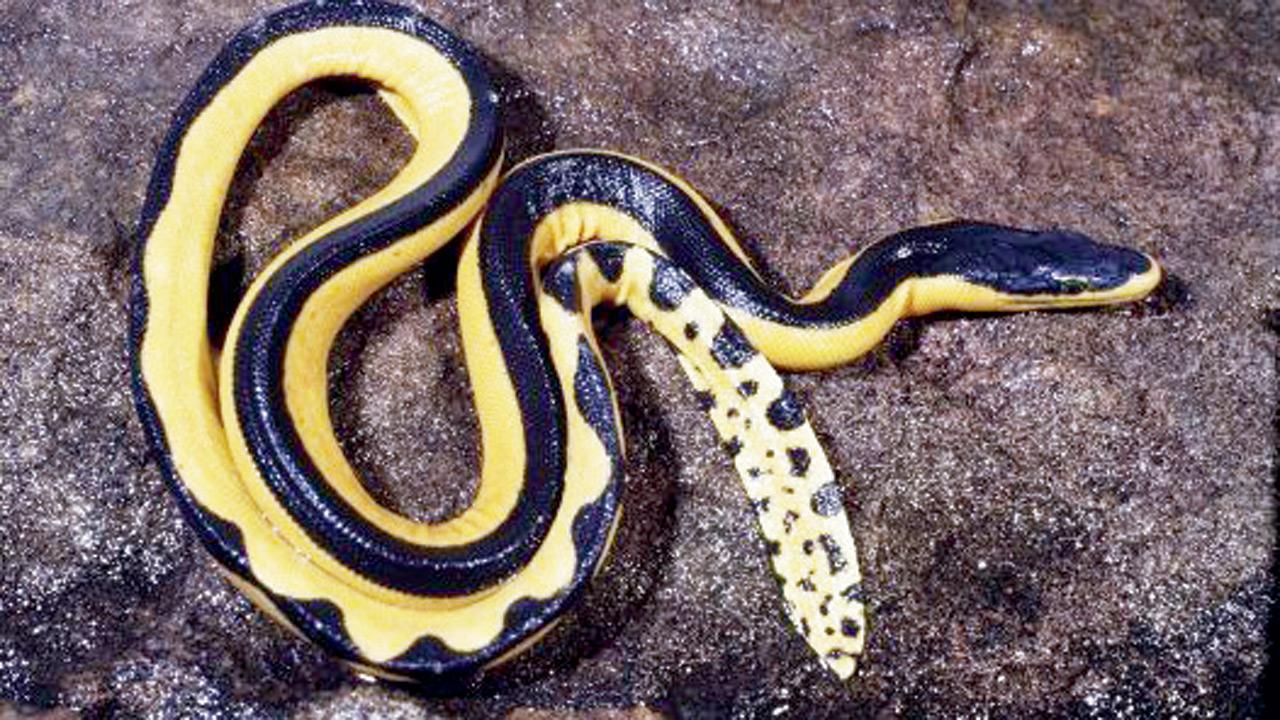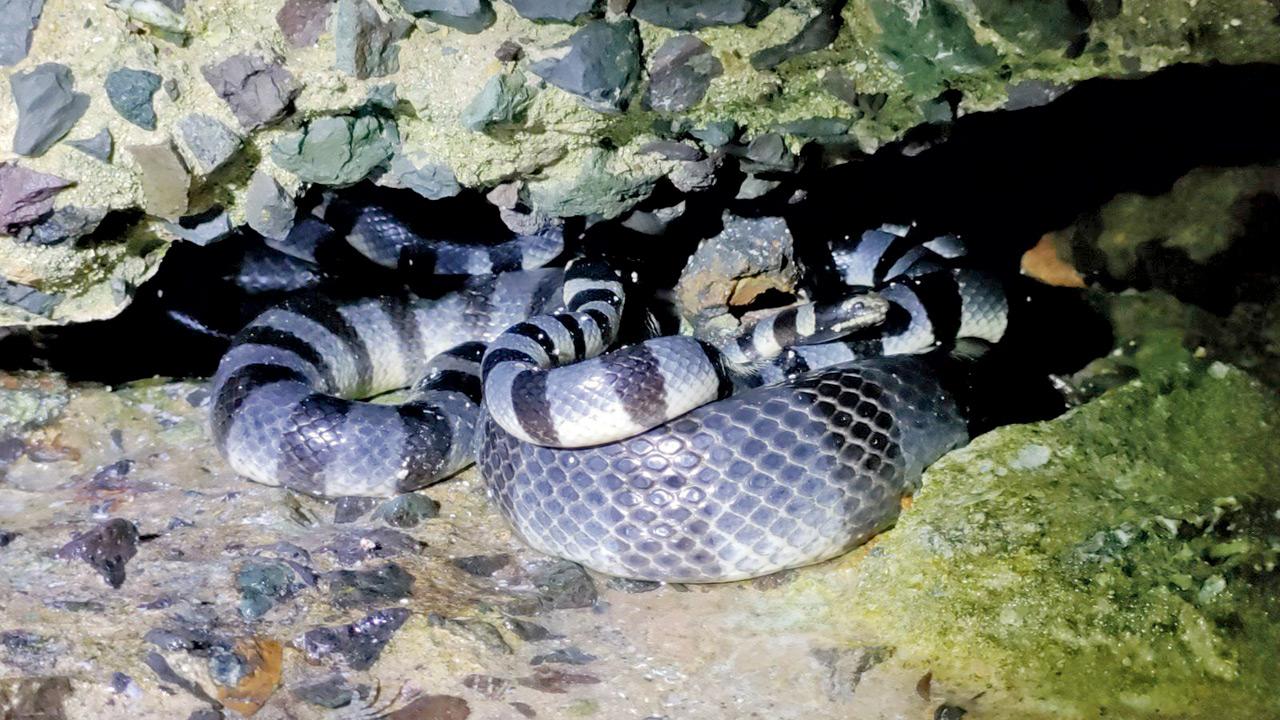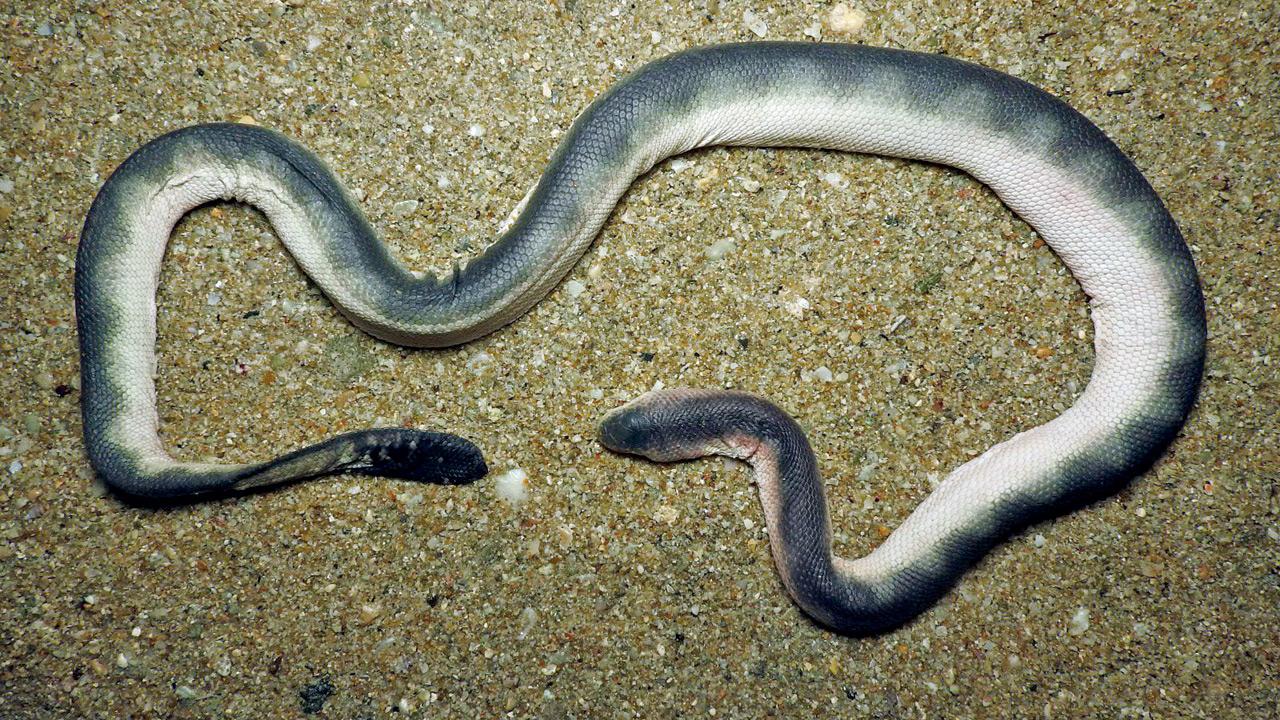Authors call for including species in biodiversity assessments; sea snakes are highly sensitive to pollution, temperature fluctuations. New studies spotlight neglected sea snakes like the Yellow-lipped krait and Viperine sea snake, warning of threats from bycatch, pollution, and habitat loss

Yellow-bellied sea snake. PIC/HAL COGGAR
Over the past two years, a team of researchers have published three comprehensive review papers spotlighting some of India’s most overlooked marine predators: the Yellow-lipped sea krait (Laticauda colubrina), the Yellow-bellied sea snake (Hydrophis platurus), and the Viperine sea snake (Hydrophis viperinus). It may be noted that these mid-trophic predators, essential to the health of coral reef and coastal ecosystems, have remained conspicuously absent from mainstream marine conservation efforts.
The studies were led by Prachi Hakar, Amisha Nakhwa, Ishani Banerjee, and Sangik Datta under the supervision of Dr Ramesh Chinnasamy from the Wildlife Institute of India, Dehradun, underscoring the ecological importance of sea snakes. Despite their unique adaptations — ranging from fully pelagic lifestyles to amphibious behaviours — sea snakes have largely been overshadowed by more charismatic marine species like dolphins, sea turtles, and coral reefs in both public discourse and policy frameworks.

Yellow-lipped sea krait. PIC/NARIMAN VAZIFDAR
The study reveals that these reptiles face numerous threats, including bycatch in fisheries, coastal habitat loss, marine pollution, and climate change. Yet, they remain unrecognised in national biodiversity assessments, are excluded from routine marine monitoring programmes, and receive little attention in coastal management strategies.
Covering just three of the 19 sea snakes and two krait species known from Indian waters, the study serves as a foundational step toward integrating these vital yet forgotten species into India's marine conservation agenda. The authors also call for urgent research to address major knowledge gaps — particularly the lack of long-term data and targeted conservation policies for sea snakes.
Sea snakes are highly sensitive to pollution, temperature fluctuations, and habitat changes. Their presence — or absence — can serve as an indicator of the overall health of coral reefs, estuaries, and coastal lagoons.
 Viperine sea snake. PIC/SANJAYA KANISHKA
Viperine sea snake. PIC/SANJAYA KANISHKA
With growing pressures on marine ecosystems, the researchers argue that safeguarding sea snake populations is not only overdue but critical to maintaining ecological balance in India's coastal waters. None of the species is part of any long-term ecological monitoring programmes in India’s marine protected areas (MPAs) or biodiversity assessments. These research papers highlight the complete absence of population trend data, movement ecology, or reproductive biology studies in Indian waters.
Marine biologist Prachi Hatkar told mid-day that, in India, sea snakes have historically been underrepresented in marine research and policy. “Our work emphasises their ecological role as mid-trophic predators — helping regulate reef and benthic fish populations — and highlights threats like bycatch, pollution, and habitat loss. Yet, these species remain excluded from national biodiversity monitoring and conservation planning.
Documenting these species is the first essential step toward recognising their importance and building targeted conservation strategies. These reviews lay the groundwork for long-term ecological monitoring, fisherfolk engagement, and better integration of sea snakes into India’s marine conservation agenda.”
It may be noted that sea snakes occupy a crucial middle position in the marine food web. They feed primarily on benthic and demersal fishes (like eels, gobies, and blennies) and sometimes crustaceans. By preying on these species, sea snakes help regulate their populations, preventing overgrazing or overcompetition that could destabilise coral reef and seagrass ecosystems.
“By consuming prey and being preyed upon (especially by sharks and large predatory fish), sea snakes play a role in energy transfer and nutrient cycling within reef and pelagic ecosystems. Despite being native and threatened, these species are absent from national biodiversity registers, IUCN regional assessments, or marine spatial planning documents. In all three species, published Indian records are highly fragmented, with most data coming from opportunistic sightings, fisherfolk bycatch reports, or grey literature. There's a clear absence of systematic field surveys or ecological studies,” said Hatkar.
 Subscribe today by clicking the link and stay updated with the latest news!" Click here!
Subscribe today by clicking the link and stay updated with the latest news!" Click here!








